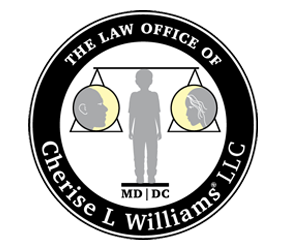Fighting for Fatherhood: Legal Strategies to Address Parental Alienation
January, 2025
Few experiences are as heartbreaking for a father as watching his relationship with his children deteriorate due to the actions of an ex-spouse. You’ve always been there for your kids, creating memories and providing guidance. But now, they seem distant, hesitant, or even hostile toward you. If this scenario feels familiar, you may be experiencing parental alienation—a painful but increasingly recognized issue in family law.
Parental alienation occurs when one parent deliberately undermines the child’s relationship with the other parent, often through negative comments, denying access, or fostering resentment. It’s an emotional form of manipulation that can damage not only your relationship with your children but also their long-term well-being. Thankfully, in Maryland and D.C., you can pursue legal remedies with the court to address parental alienation and protect your parental rights. However, courts sometimes struggle to fully grasp the nuances of parental alienation. That’s why it’s crucial to work with a firm like ours that takes this issue seriously and works to ensure your voice is heard and your rights are protected.
What Is Parental Alienation?
Parental alienation can take many forms, from subtle behaviors like discouraging communication between a parent and child to overt tactics like spreading false information. Children caught in this situation may feel torn, confused, and pressured to align with one parent, leaving the other out in the cold.
If you suspect parental alienation, acting promptly is vital. Family courts in Maryland and D.C. emphasize the "best interests of the child," which includes maintaining strong, healthy relationships with both parents. Below are key strategies to help you protect your rights and reconnect with your children.
1. Document Everything
Strong evidence is the foundation of any parental alienation case. Keep detailed records of missed visitations, hostile communications, or any actions by your ex-spouse that interfere with your parenting. Emails, text messages, and a journal of specific incidents can all help demonstrate the extent of the alienation to the court.
2. Seek a Custody Evaluation
A custody evaluator may be able to identify alienation behaviors and provide recommendations that focus on your child’s well-being. These evaluations, conducted by neutral professionals, often play a critical role in understanding the dynamics between parents and children.
3. Consider Filing for Custody Modification
If parental alienation is significantly affecting your parenting time or your relationship with your children, you may be able to file for a modification of your custody arrangement. Legal representation can guide you in presenting evidence and advocating for changes that prioritize your child’s best interests.
4. Request Reunification Therapy
Reunification therapy is designed to repair relationships between estranged parents and children. In cases of parental alienation, this therapy can be a vital tool to rebuild trust and connection in a neutral, supportive environment. A skilled attorney can help you request this as part of your case.
5. Work with an Experienced Attorney
Navigating the complexities of parental alienation cases requires both legal expertise and a strategic approach. A seasoned attorney will help you gather evidence, present a compelling case, and advocate for your parental rights in court.
Our Commitment to Fathers in Maryland and D.C.
At the Law Office of Cherise L. Williams, we understand the unique struggles fathers face in parental alienation cases. We take a proactive approach, not only advocating for your rights but also educating the courts about the impact of alienation and the importance of a father’s bond with his children. Nothing in family law is ever black or white, but with our firm, you’ll find a steadfast partner dedicated to helping you tell your story and protect your parental role.
Take the First Step Today
If you’re a father in Maryland or D.C. facing parental alienation, our firm is here to help. Schedule a consultation today to discuss your case and learn how we can advocate for your parental rights. Don’t let parental alienation define your family’s future—take action now.

